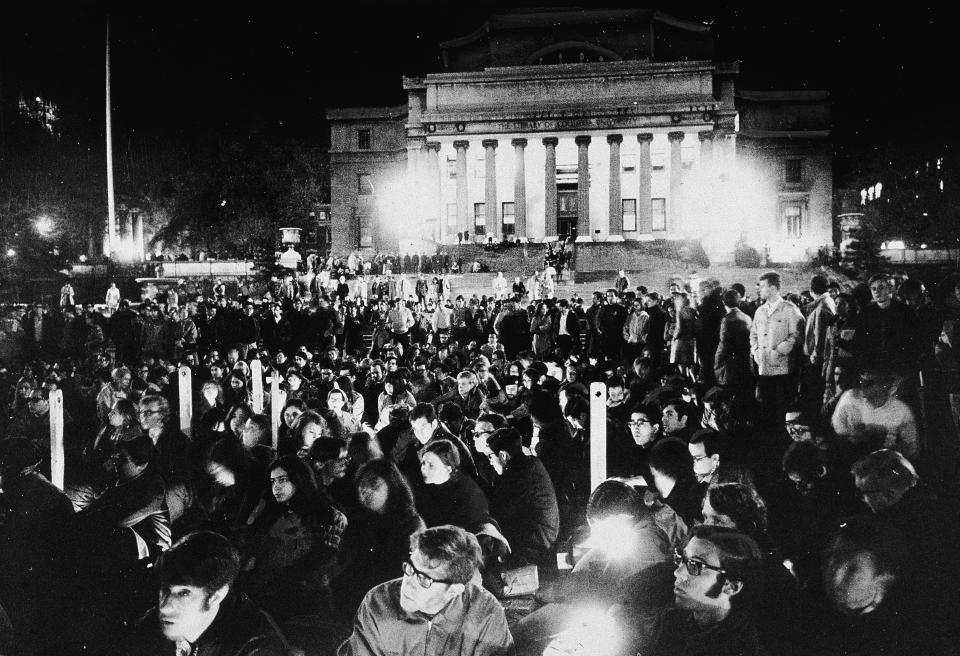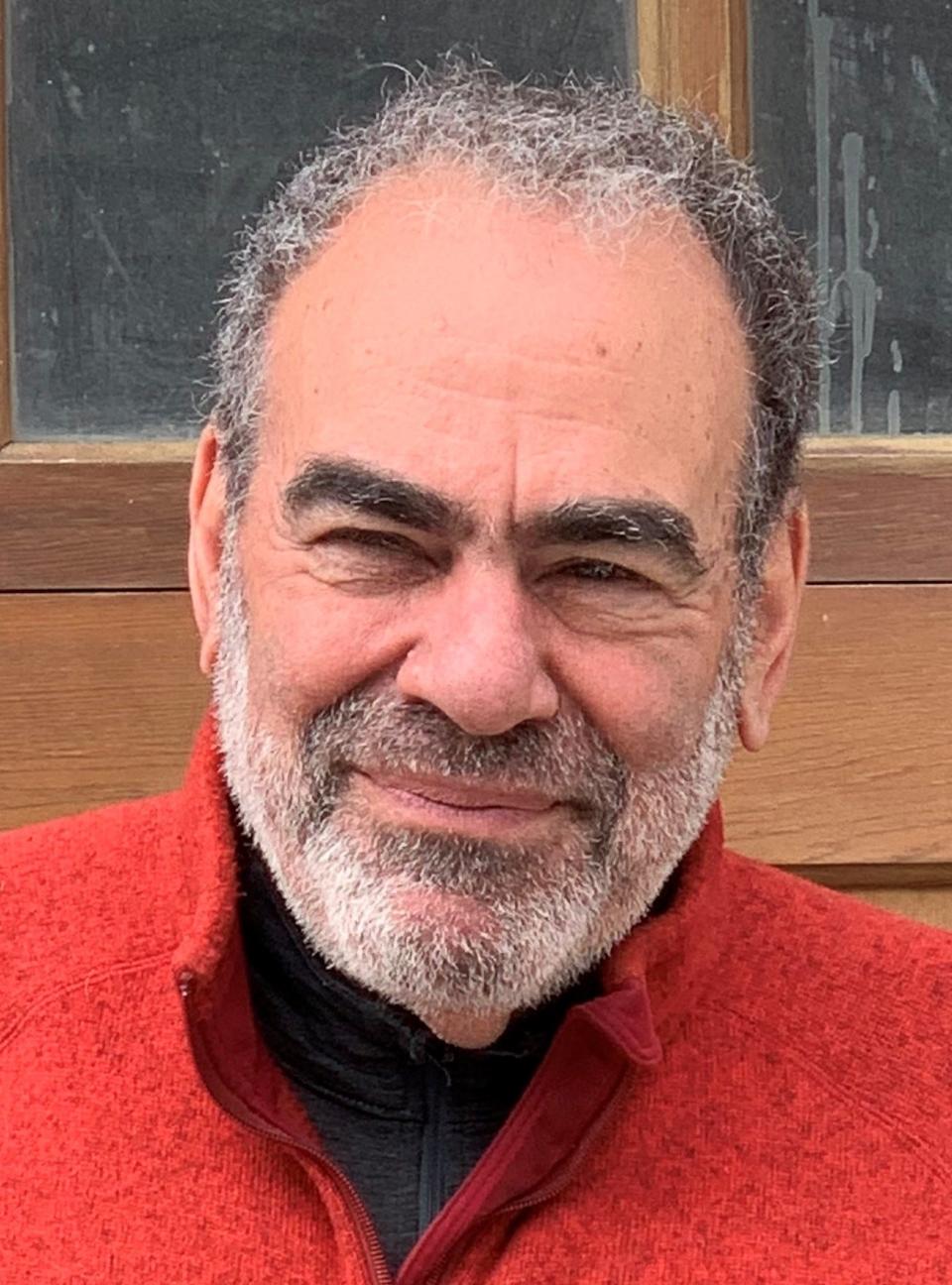'Vote in the streets?’ Vietnam War protesters reassess strategy more than 50 years later
Michael Ansara spent the better part of the 1960s and ‘70s protesting the Vietnam War as an organizer for Students for a Democratic Society.
Now 77, Ansara said he isn’t any less “radical” than he was half a century ago, but he is less “foolish.”
Like many, Ansara sees striking similarities between 1968 and 2024 – flourishing antiwar protests, a contentious upcoming presidential election and Democrats heading for Chicago in August to formally select their White House nominee.
This year, college-aged voters have expressed deep disillusionment with President Joe Biden and his handling of America’s role in the Israel-Hamas War. Many in the core Democratic voting bloc have threatened to sit out the presidential election.
Ansara understands the mindset all too well. In 1968, he and other activists rejected then-Democratic nominee Hubert Humphrey, the sitting vice president, because of his support for the Vietnam War. They chanted “vote with your feet, vote in the street” during protests, and refused to participate in electoral politics, believing there were only shades of difference between Humphrey and the Republican candidate Richard Nixon.
It was misguided, Ansara now says.
“It was not that we protested. It was not that our assessment about Humphrey was wrong,” he argued. “It was that we had a failure of political imagination.”
Nixon went on to win the popular vote by less than 0.5% and U.S. involvement in Vietnam persisted for another five years. It wasn’t until decades later that Ansara said he realized the critical error.
If activists had worked to get Humphrey elected and pushed for the South Dakota politician to end the war, Ansara said he believes they could have saved millions of lives – both American and Vietnamese.
This year, as Biden and former President Donald Trump gear up for a similarly tight matchup in November, he and other antiwar activists USA TODAY spoke with said they won’t make the same mistake.
And they hope the younger generation of pro-Palestinian protesters will heed their regrets.
Déjà vu
Mark Naison, now a professor of history at Fordham University, was a doctoral student at Columbia University in 1968. Naison said he joined the protests on campus that year, which urged the university to end its connections to military research in support of the Vietnam War and cease construction of a gym they believed promoted segregation.
These days, he has déjà vu watching students at his alma mater organize encampments and take over Hamilton Hall – the same administration building Naison and others occupied more than 50 years ago.

The 77-year-old expects many of the people he protested with to vote for Biden this fall, despite some reservations with the president’s handling of Israel.
The same cannot be said, according to Naison, for younger protesters.
A Harvard Kennedy School poll published in April found that 41% of voters ages 18 to 29 said they disliked both Trump and Biden. A whopping 76% disapprove of Biden’s handling of the Israel-Hamas War.
Naison said he worries that current events will push the country’s politics to the right, a trend he recalled happening decades ago with Nixon's election in 1968.
“Even people who may have started to have doubts about the war didn't like the sight of young people at elite universities who were highly privileged taking over buildings, blocking classes, and then getting involved in encounters with, somewhat violent encounters, with the police,” Naison said.
A new perspective
Many of the former antiwar protesters of the 1960s and ‘70s who USA TODAY spoke with said their political leanings haven’t shifted much in the last half-century.
If anything, these now 70- and 80-year-olds say they’ve merely become more pragmatic
Miles Rapoport, a former member of Students for a Democratic Society, said he supports protesters' calls for a ceasefire in Gaza.
But he said he sees more differences than similarities between government actions during the Vietnam War and Biden’s response to the Israel-Hamas war.
Rapoport, who previously served as the secretary of state of Connecticut, argued that responsibility for the war in Vietnam fell squarely on the shoulders of U.S. leaders, whereas the war in Gaza was initiated “by the policies of Israel and the outrageous attack by Hamas.”
Unlike leaders during the Vietnam War, who Rapoport said were “deaf” to the opposition, he insisted that Biden is working toward ending the war.
“The major lesson that we learned is not to let short term disagreements or even passionate disagreements with the president blind you to the major differences between the two presidential candidates,” Rapoport, 74, said.
Others, like Jan Barry, a former officer of Vietnam Veterans Against the War, do see themselves in the protesters. “If I didn't have handicaps, I'd be out there with them,” Barry, 81, said.
This year’s demonstrations are no different than any of the past, Barry argued, reminiscing about a 1971 encampment that Vietnam veterans erected on the National Mall in Washington, D.C., to advocate for an end to the war. That movement, Barry said, was based on another staged by World War I veterans in 1932 to demand early payment of their bonuses during the Great Depression.
Much like today's student protesters, Barry, who is the same age as Biden, described the president’s response to the Israel-Hamas conflict as “terrible.”
And in the upcoming June 4 New Jersey Democratic presidential primary, Barry plans to vote “uncommitted” to protest Biden’s Israel policies. He said he is also holding out hope that both Biden and Trump will drop out before the general election, as then-President Lyndon B. Johnson did in a surprise announcement in March 1968 during a nationally-televised address where he outlined plans to scale back U.S. involvement in Vietnam.
But short of that unlikely possibility, Barry said there’s “no choice.” He will vote for Biden.
“He did end the war in Afghanistan,” Barry said. “I have a little bit of hope that he'll keep pushing for the right thing to be done regarding Gaza.”
Experience ‘worth learning from’
Even with fears about the election looming, many of the now seasoned antiwar protesters are hesitant about advising the younger generation.
Ansara, who is writing a memoir about his years as an activist, said he is doubtful that young people will take the advice of protesters from the 1960s and 70s, even if it is given.
“In 1968, I was 21 years old,” Ansara said. “There is absolutely no way I would have listened to any old person telling me what to do or not to do.”

Michael James, 82, told USA TODAY he feels like a “revisionist” when he cautions young people, including his adult children, about “being too out there,” because he feels like he’s moving away from the cause.
Amid the chaos that was the 1968 Democratic National Convention in Chicago, James – then a 26-year-old shaggy haired activist – was immortalized in a black-and-white photograph rocking a police van while staring at the camera.
“Looking back on it, we were responsible, not initially, but at that moment, in bringing Nixon to power,” James said of his generation’s apathy toward the ballot box.
Today, the Bernie Sanders-loving “progressive leftist,” believes that Trump poses a threat of fascism too great to ignore.
“Nixon is a lot less dangerous, or was, than I think Trump is,” James told USA TODAY. “I'm kind of rooting for Biden and the Democrats. Years ago, I wouldn't have been.”
This article originally appeared on USA TODAY: Vietnam War protesters urge young people to vote in 2024 elections